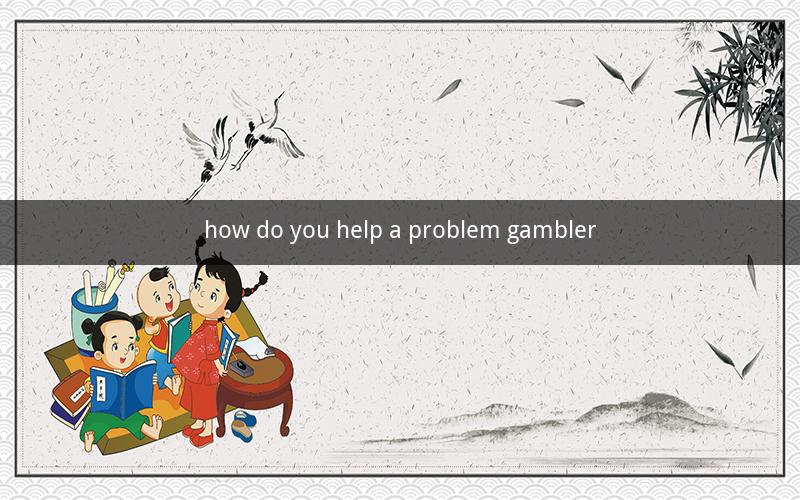
How Do You Help a Problem Gambler?
Table of Contents
1. Understanding Problem Gambling
2. Signs and Symptoms of Problem Gambling
3. The Impact of Problem Gambling on Individuals and Families
4. Encouraging the Gambler to Seek Help
5. Communicating with a Problem Gambler
6. Professional Help and Therapies
7. Support Groups for Problem Gamblers
8. Family Support and Intervention
9. Creating a Safe Environment
10. Preventing Relapse
1. Understanding Problem Gambling
Problem gambling, also known as gambling disorder, is a serious condition characterized by an inability to control the urge to gamble, despite negative consequences. It affects individuals of all ages, backgrounds, and socioeconomic statuses. Understanding the nature of problem gambling is crucial in providing effective help to those struggling with it.
2. Signs and Symptoms of Problem Gambling
Identifying the signs and symptoms of problem gambling is the first step in offering assistance. These may include:
- Increased time spent gambling
- Preoccupation with gambling, even when not gambling
- Repeated failed attempts to stop gambling
- Borrowing money to finance gambling
- Lying to hide gambling activities
- Neglecting responsibilities at work, school, or home
- Feeling restless or irritable when attempting to stop gambling
3. The Impact of Problem Gambling on Individuals and Families
Problem gambling can have devastating effects on individuals and their families. It can lead to financial ruin, relationship problems, legal issues, and even mental health disorders. Recognizing these impacts is essential for providing comprehensive support.
4. Encouraging the Gambler to Seek Help
Encouraging a problem gambler to seek help is a delicate process. It involves:
- Expressing concern without judgment
- Providing information about available resources
- Offering to accompany them to a professional
- Ensuring they feel supported and understood
5. Communicating with a Problem Gambler
Effective communication is key to helping a problem gambler. This includes:
- Listening actively and without interrupting
- Avoiding confrontational language
- Using "I" statements to express feelings and concerns
- Keeping the conversation focused on the present and future
6. Professional Help and Therapies
Professional help can be invaluable in treating problem gambling. Therapies such as cognitive-behavioral therapy (CBT), motivational interviewing, and contingency management have proven effective. Here's a breakdown of each:
- Cognitive-behavioral therapy (CBT): Helps individuals identify and change negative thought patterns and behaviors associated with gambling.
- Motivational interviewing: Assists individuals in exploring and resolving ambivalence about changing their gambling behavior.
- Contingency management: Uses rewards to increase positive behaviors and reduce negative ones.
7. Support Groups for Problem Gamblers
Support groups, such as Gamblers Anonymous, provide a sense of community and understanding for those struggling with problem gambling. They offer a safe space to share experiences, learn coping strategies, and receive encouragement.
8. Family Support and Intervention
Families play a crucial role in supporting a problem gambler. This includes:
- Educating themselves about problem gambling
- Offering unconditional love and support
- Participating in family therapy or counseling
- Setting boundaries and consequences for gambling behavior
9. Creating a Safe Environment
Creating a safe environment for a problem gambler involves:
- Removing access to gambling opportunities
- Encouraging alternative activities and hobbies
- Celebrating non-gambling achievements
- Providing a stable and supportive home environment
10. Preventing Relapse
Preventing relapse is essential in the recovery process. This can be achieved through:
- Continuing therapy and support group participation
- Developing a relapse prevention plan
- Monitoring progress and adjusting strategies as needed
- Maintaining a strong support network
Questions and Answers
1. Q: How can I tell if someone is a problem gambler?
A: Look for signs such as increased time spent gambling, lying about gambling activities, and neglecting responsibilities.
2. Q: What is the most effective treatment for problem gambling?
A: The most effective treatment depends on the individual, but cognitive-behavioral therapy (CBT) is often recommended.
3. Q: Can problem gambling be cured?
A: While there is no cure, problem gambling can be effectively managed with proper treatment and support.
4. Q: How can I help a loved one who is a problem gambler?
A: Offer support, educate yourself about problem gambling, and encourage them to seek professional help.
5. Q: Are there any medications for problem gambling?
A: Some medications may be prescribed to help with certain symptoms, but they are not a standalone treatment.
6. Q: Can problem gambling lead to addiction?
A: Yes, problem gambling can lead to addiction, making it a serious and potentially life-threatening condition.
7. Q: How can I support a family member affected by problem gambling?
A: Participate in family therapy, offer emotional support, and help them find resources for help.
8. Q: Can a problem gambler recover on their own?
A: While some individuals may recover on their own, seeking professional help and support groups can significantly improve outcomes.
9. Q: What should I do if I think I might have a problem with gambling?
A: Seek help from a professional, join a support group, and talk to someone you trust about your concerns.
10. Q: How can I prevent relapse after treatment for problem gambling?
A: Continue therapy, develop a relapse prevention plan, and maintain a strong support network.